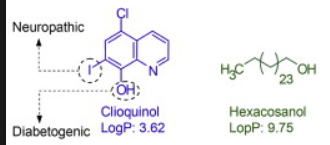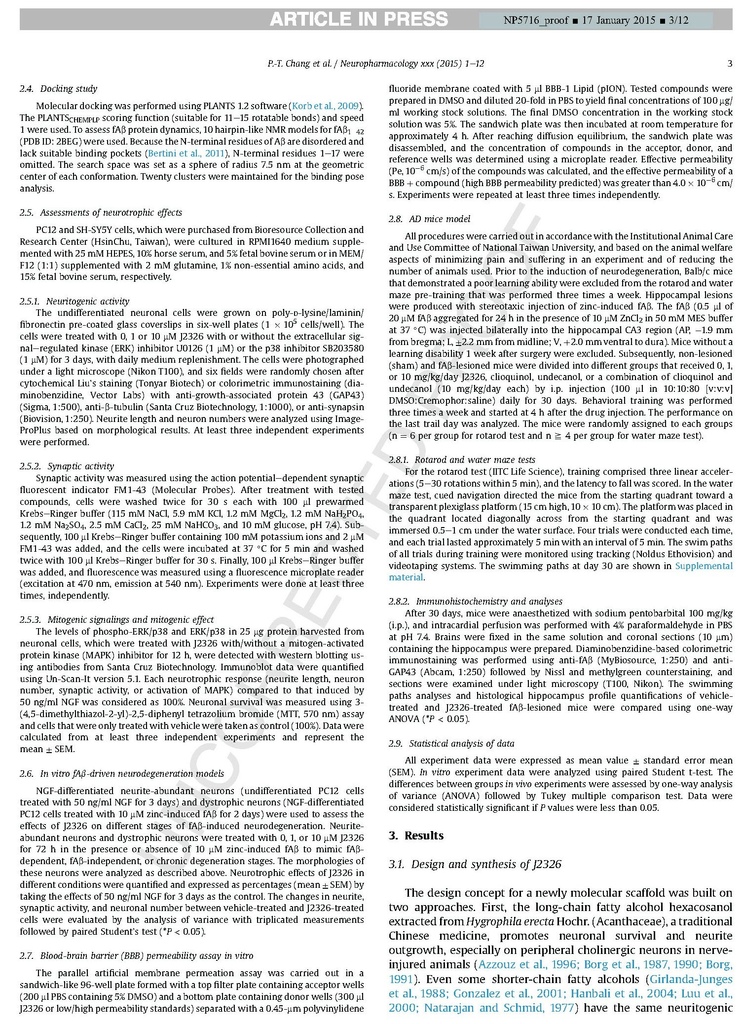Neuropharmacology. 2015 May;92:146-57. doi: 10.1016/j.neuropharm.2015.01.004. Epub 2015 Jan 14.
Abstract
Alzheimer's disease is a neurodegenerative disorder characterized by deposition of β-amyloid (Aβ) fibrils accompanied with progressive neurite loss. None of the clinically approved anti-Alzheimer's agents target both pathological processes. We hypothesized that conjugation of a metal chelator to destabilize Aβ fibrils (fAβs) and a long-chain fatty alcohol to induce neurite outgrowth may generate a novel molecular scaffold that targets both pathologies. The hydroxyalkylquinoline J2326 was designed and synthesized by joining an 11-carbon alcohol to 5-chloro-8-methoxyquinoline at the 2-position and its anti-neurodegenerative potentials in vitro and in vivo were characterized. It attenuated fAβ formation and disaggregated the existing fAβ zinc-dependently as well as zinc-independently. It also triggered extracellular signal-regulated kinase-dependent neurite outgrowth and increased synaptic activity in neuronal cells. In fAβ-driven neurodegeneration in vitro, J2326 reversed neurite collapse and neurotoxicity. These roles of J2326 were also demonstrated in vivo and were pivotal to the observed improvement in memory of mice with hippocampal fAβ lesions. These results show that the effectiveness of J2326 on fAβ-driven neurodegeneration is ascribed to its novel scaffold. This might give clues to evolving attractive therapy for future clinical trials.


















 留言列表
留言列表
 線上藥物查詢
線上藥物查詢 